China's Communist Party theme park - and other unusual attractions
- Published
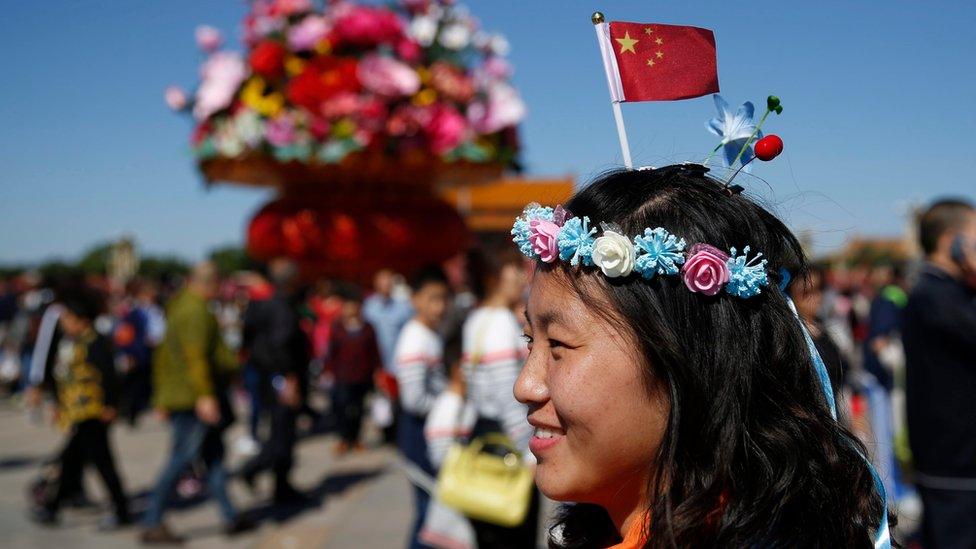
President Xi Jinping has been keen to encourage patriotism and pride in the Communist Party
A Communist Party-themed amusement park has opened in Wuhan, China in time for the Golden Week holidays - but has failed to impress everyone. The BBC takes a look at the theme park designed to instil "socialist values" - and five other unusual tourist attractions in China.
Despite being dubbed central China's largest such park by the Wuhan Evening News, external, the Communist Party-themed amusement park has attracted criticism.
Less party-minded online critics have ridiculed the park's rather plain appearance, external - and what they see as its attempt to "brainwash" visitors.
The Communist Party theme park's exhibits include a Young Pioneers flag and an illuminated sculpture, external with the core values of the Party inscribed on it.
It is hoped the park will help visitors better understand concepts like "socialism with Chinese characteristics" and the "outstanding contributions" made by key figures in the history of the Party.
But while so-called "red tourism" is undergoing a resurgence, not everyone liked the idea.
Commenting on social media, weibo user Fengjiangdepanqujiu said: "I've always thought that if you corralled all 8 million Communist Party members into a special zone, the Communist ideals would immediately be realised."
Netizen H_Helios was even less complimentary: "Not complete; they also need to set up a few statues of corrupt officials for citizens to spit on."

Wowowojiubu was similarly uninspired by the park: "This sort of brainwashing process is simply wasting taxpayer's hard-earned money"
More capitalist-friendly leisure consumers may perhaps prefer to save their yuan for a trip to Universal Studios' planned theme park in Beijing - reportedly due to open in 2019, but with more input from Steven Spielberg, external than Chairman Mao. There's also the much-delayed Shanghai Disney Resort, currently due to open in 2016.
But for those who prefer their attractions a little more left-of-field, if not quite as left-wing as Wuhan's park, there is no shortage of quirky tourist destinations in China.
1. Roast duck museum
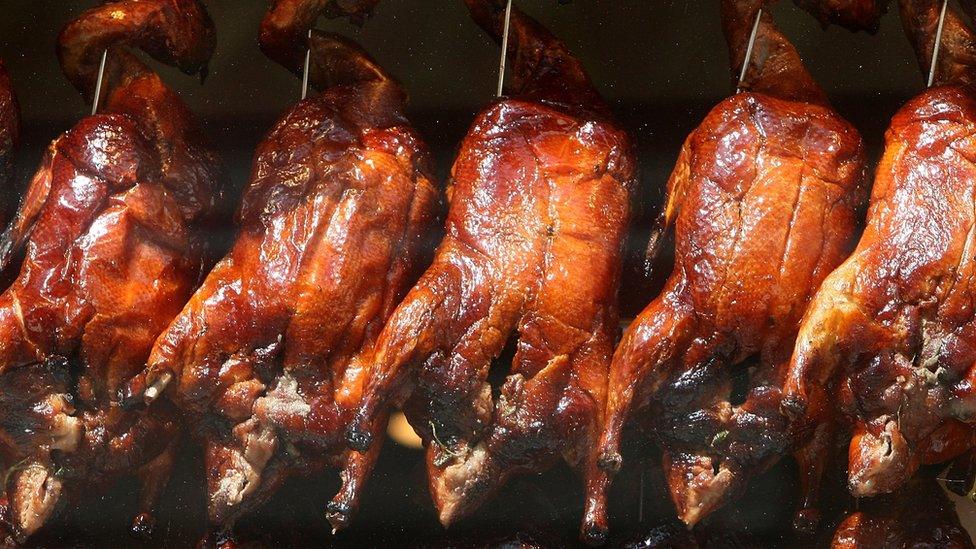
A popular dish around the world, the museum features photos of Henry Kissinger and Richard Nixon eating Peking duck in Beijing
Wandering around museums can be hungry work, which is probably a good thing for the Quanjude restaurant chain behind Beijing's roast duck museum. The exhibits include clay models showing you how to prepare roast duck and pictures of famous people, including actor Charlie Chaplin, eating Peking duck.
While it may seem like an odd subject for a museum, it is part of a boom in museums of all kinds, that has seen hundreds of museums created every year.
2. Watermelon museum
But if you prefer healthier fare, the Beijing area has that covered too, with a watermelon museum, external in nearby Daxing. This shrine, external to many people's favourite fruit is packed with facts about their cultivation and history.
Its location is not accidental - the area just south of the capital is famous for melon production.
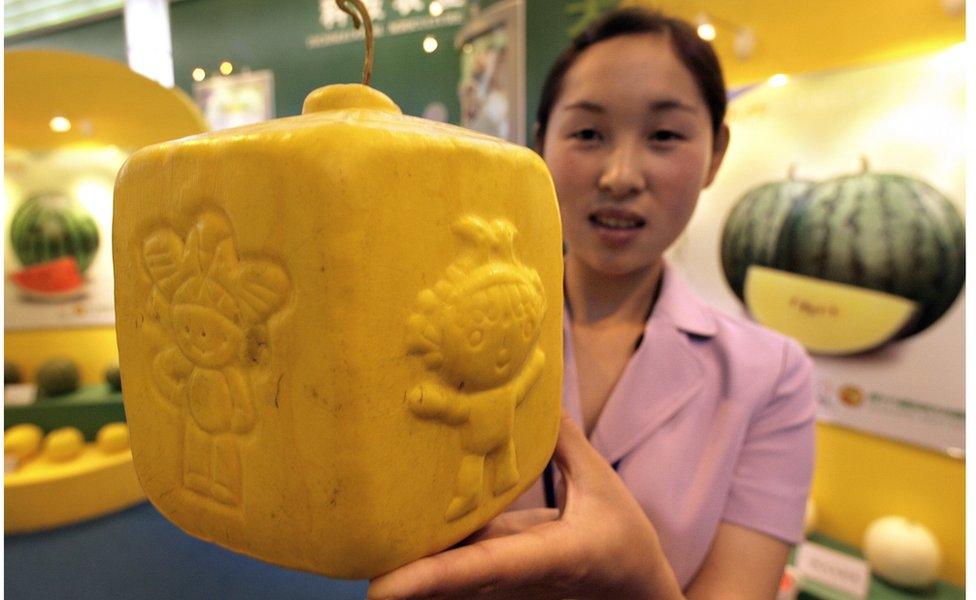
A watermelon on display at Daxing's watermelon festival features the shapes of the country's 2008 Olympic mascots
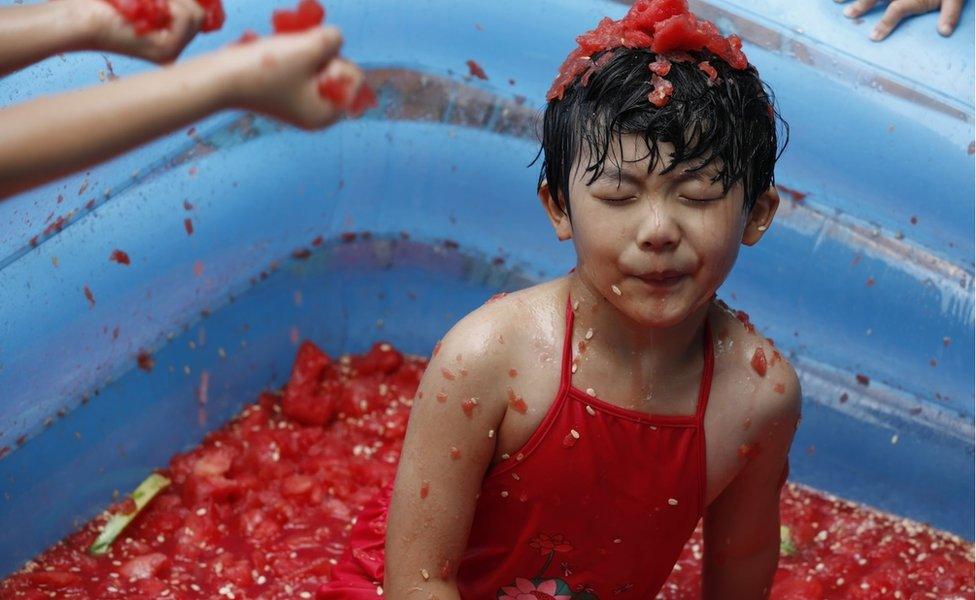
One of China's most popular summer fruits, it even finds a use as ammunition in children's "watermelon wars"
3. Guerrilla life
China's official Xinhua news agency, external reported last year on a cultural theme park in northern Shanxi province that "lets tourists sample life as a guerrilla" through stage shows of war stories and tours around Wuxiang County, which was host to many of China's older revolutionary heroes at various times.
4. Raising the Titanic
Given its somewhat unfortunate record on sea-worthiness you might think it would not be such a good idea to recreate the Titanic, which sank after hitting an iceberg in 1912.
But the Seven Star Energy Investment Group is apparently determined to make it the main attraction at their planned theme park in Daying, Sichuan Province.
Said by the Global Times, external to have an estimated cost of around one billion yuan ($157m; £103m), the manager of the shipyard responsible admitted to local media that the project was "challenging" as the ship had to meet modern shipbuilding standards. Given the Titanic's history, that is probably just as well.
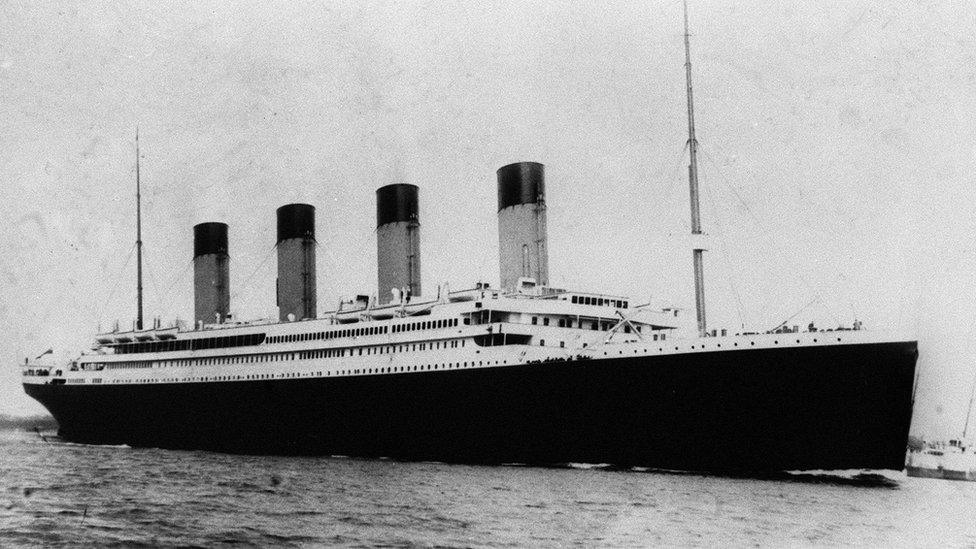
The doomed romance of the SS Titanic has captured the imaginations of people all around the world
5. Crime and punishment
Chinese President Xi Jinping has used his time in office to crack down on corruption and encourage public patriotism. So it should come as no surprise that along with the growth in "revolutionary tourism", people are increasingly visiting museums dedicated to (the evils of) corruption, external and crime too.
Beijing's Police Museum, external incorporates both, offering displays on particularly nasty misdemeanours on their patch, as well as their involvement in operations against the nationalist Kuomintang forces in the Chinese Civil War.
And with officials falling like flies in the face of corruption allegations, visiting displays of what happens when the powerful get greedy has become not just an entertaining pastime but a preventative measure too.
One eastern Chinese city, Shiyan, made dozens of local officials and their partners tour a prison, as a warning against the temptations of corruption, and anti-graft "education centres", external can be found across China, external.
At one such centre, external in Beijing's Haidian District, gloomy prison doors contrast with hi-tech interactive displays, to better visualise the fate that befalls the corrupt.
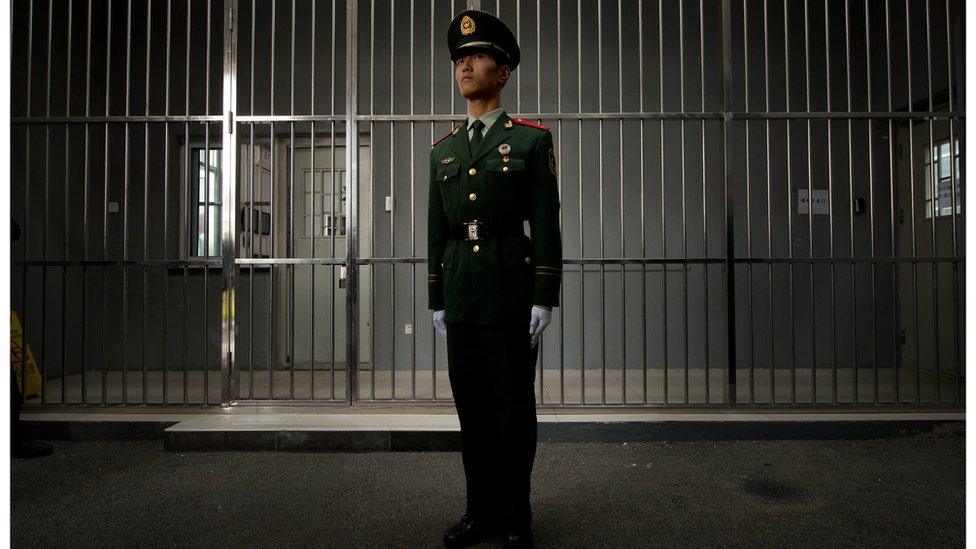
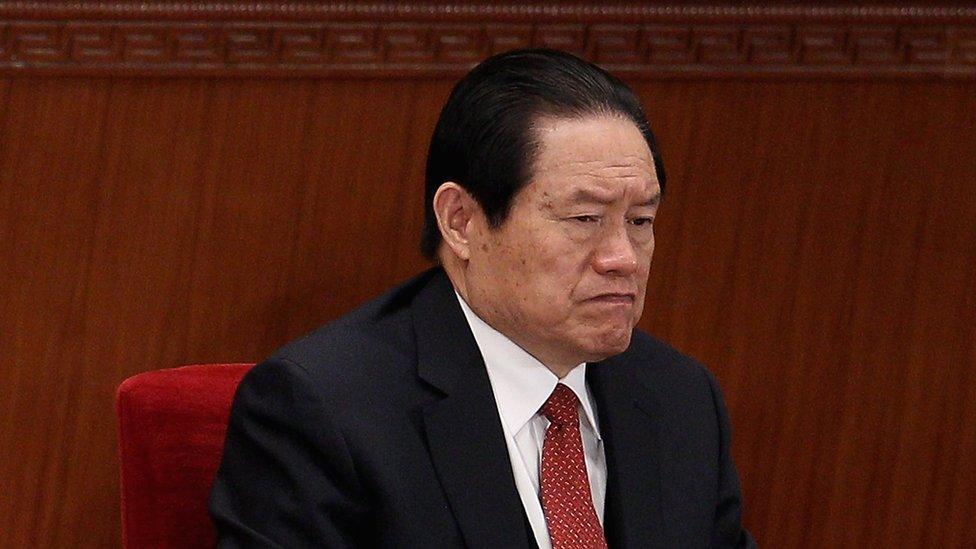
Visitors can ponder the fate of officials like Zhou Yongkang, convicted of large-scale corruption, at the "education centres"